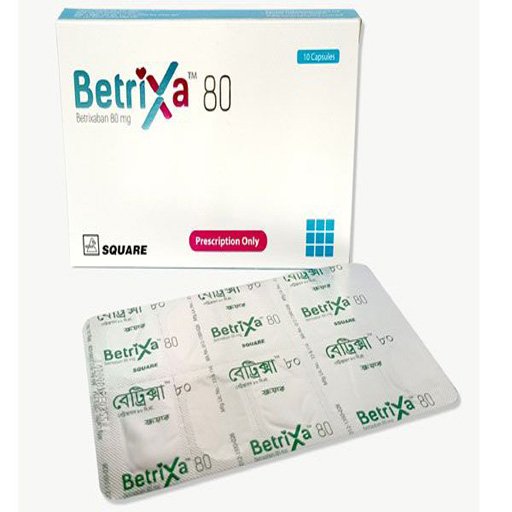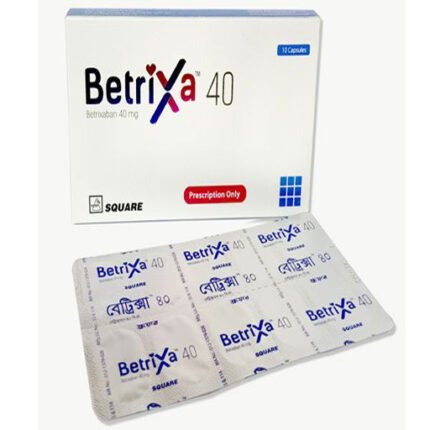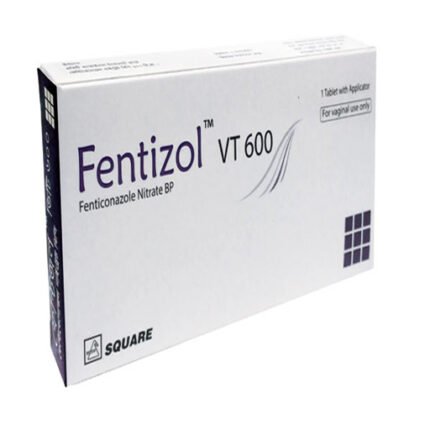BetriXa 80
1,150.00৳ Strip
- BetriXa provides effective prophylaxis against venous thromboembolism (VTE) in hospitalized adults with acute medical illnesses.
- Betrixaban, a factor Xa inhibitor, selectively blocks factor Xa’s active site, reducing thrombin generation without affecting platelet aggregation.
- Administered orally, BetriXa’s recommended dosage involves an initial single dose followed by daily doses, all with food.
- Careful monitoring for bleeding risks and adherence to precautions during certain medical procedures are crucial for optimal safety and efficacy.
 Brand
Brand
|
Square Pharmaceuticals PLC |
|---|---|
 Generics
Generics
|
Betrixaban |
Indications
BetriXa is prescribed for adult patients hospitalized with acute medical illnesses to prevent venous thromboembolism (VTE), particularly when there’s limited mobility and other VTE risk factors.
Pharmacology
Betrixaban acts as a factor Xa inhibitor, targeting the active site of factor Xa without needing a cofactor. It effectively reduces thrombin generation, vital in preventing VTE, with no impact on platelet aggregation.
Dosage & Administration
The recommended Betrixaban dosage is an initial single dose of 160 mg, followed by 80 mg daily, taken consistently with food for 35 to 42 days.
Interaction
P-gp Inhibitors can increase BetriXa’s blood levels, while P-gp Inducers can decrease them. Additionally, caution is advised when combining with anticoagulants, antiplatelets, and thrombolytics due to increased bleeding risk.
Contraindications
Betrixaban should not be used in patients with active pathological bleeding or severe hypersensitivity reactions to the medication.
Side Effects
Common adverse reactions include bleeding, with a risk of epidural or spinal hematoma during certain procedures.
Pregnancy & Lactation
The use of Betrixaban during pregnancy may heighten the risk of hemorrhage. Data on its presence in breast milk and its effects on breastfeeding infants are lacking.
Precautions & Warnings
Due to the risk of bleeding, it’s essential to monitor for signs of blood loss. Special precautions are warranted during neuraxial anesthesia or puncture and in patients with severe renal impairment or using concomitant P-gp inhibitors.
Use in Special Populations
Dosage adjustments may be necessary for patients with severe renal impairment. Patients with hepatic impairment should avoid Betrixaban, especially those with moderate to severe impairment.
Therapeutic Class
BetriXa falls under the category of antiplatelet drugs.
Storage Conditions
Store BetriXa below 30°C, away from light and moisture, and keep it out of the reach of children.













Reviews
There are no reviews yet.